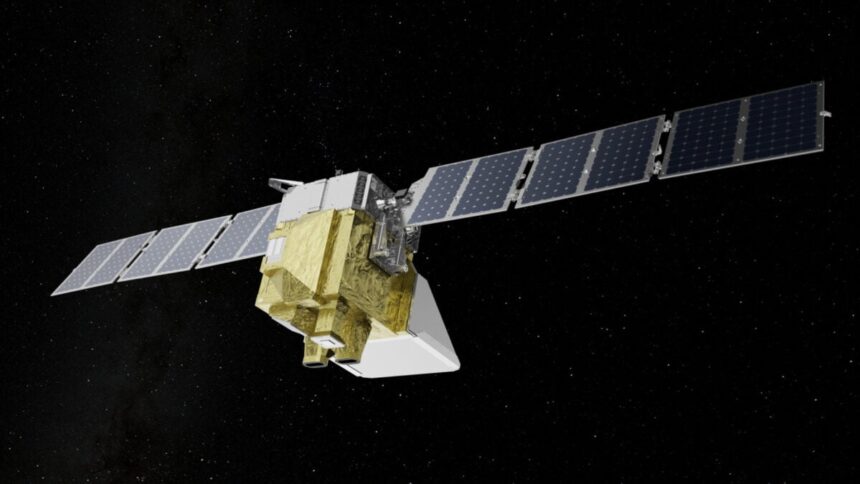An $88 million satellite backed by billionaire Jeff Bezos is lost in space. MethaneSAT, designed to sniff out sources of methane emissions across the globe, only survived about 15 months in Earth’s orbit before meeting its untimely end.
The Environmental Defense Fund (EDF), which launched the satellite in March 2024, announced its demise on July 1. The organization revealed that MethaneSAT suddenly went silent on June 20, and its mission operations team has been unable to re-establish contact ever since. Now, they believe the satellite has lost power altogether. Steven Hamburg, EDF’s chief scientist and leader of the MethaneSAT mission, told Science there was no previous indication of a problem. “Not one of my better days or weeks,” he said.
When MethaneSAT launched, EDF promised it would be a “game-changer” for tracking planet-warming methane emissions, helping regulators address point sources of this potent greenhouse gas. In some ways, it has been. For over a year, this satellite helped pinpoint industrial sources of methane emissions—primarily those produced by the oil and gas industry. This greenhouse gas is incredibly potent, trapping 28 times more heat in Earth’s atmosphere over a 100-year time period than carbon dioxide, according to the Environmental Protection Agency.
Experts know methane emissions primarily stem from agriculture, fossil fuel production, and decomposition of landfill waste, but its point sources are difficult to locate and quantify individually. MethaneSAT, developed with the help of a $100 million grant from Jeff Bezos’s Earth Fund, aimed to make this easier. While other satellites—such as the European Space Agency’s Sentinel-5—can map methane on larger scales, MethaneSAT’s state-of-the-art spectrometers could detect smaller emissions across entire oil and gas fields. At the same time, it zeroed in on hot spots with unprecedented precision, producing high-resolution snapshots of methane “leaks.”
“Thanks to MethaneSAT, we have gained critical insight about the distribution and volume of methane being released from oil and gas production areas,” the EDF statement reads. “We have also developed an unprecedented capability to interpret the measurements from space and translate them into volumes of methane released. This capacity will be valuable to other missions.”
Still, it’s a huge bummer that MethaneSAT’s operational days are over. This satellite was supposed to survive five years in orbit, circling the Earth 15 times per day to produce a wealth of freely available, near-real-time data. This would have made tracking and regulating emissions much easier for both companies and regulators. The data would also have been available to stakeholders, including citizens, governments, investors, and gas importers.
EDF hopes the satellite’s legacy will live on. “EDF and MethaneSAT remain firmly committed to our core purpose of turning data into action to protect the climate, including reducing methane emissions from the global oil and gas industry,” the organization stated. EDF will continue processing the data it has retrieved from the satellite, with plans to release additional images of regional-scale methane emissions from fossil fuel production over the coming months. The group will also work with global partners to leverage the algorithms and associated software built to convert its observations into emissions estimates, as well as its high-precision technology. Other satellites could make use of these assets to fill in the gap MethaneSAT left behind.
EDF has not shared plans to launch another satellite. “We’re going to take a pause,” Hamburg told Science. “Obviously, we’ve suffered a loss,” he said. “I have a large team of people who have put their heart and soul into what many people said was impossible.” Hopefully, MethaneSAT’s successes encourage other innovators to continue its mission. “To solve the climate challenge requires bold action and risk-taking and this satellite was at the leading edge of science, technology, and advocacy,” EDF stated.
Read the full article here












